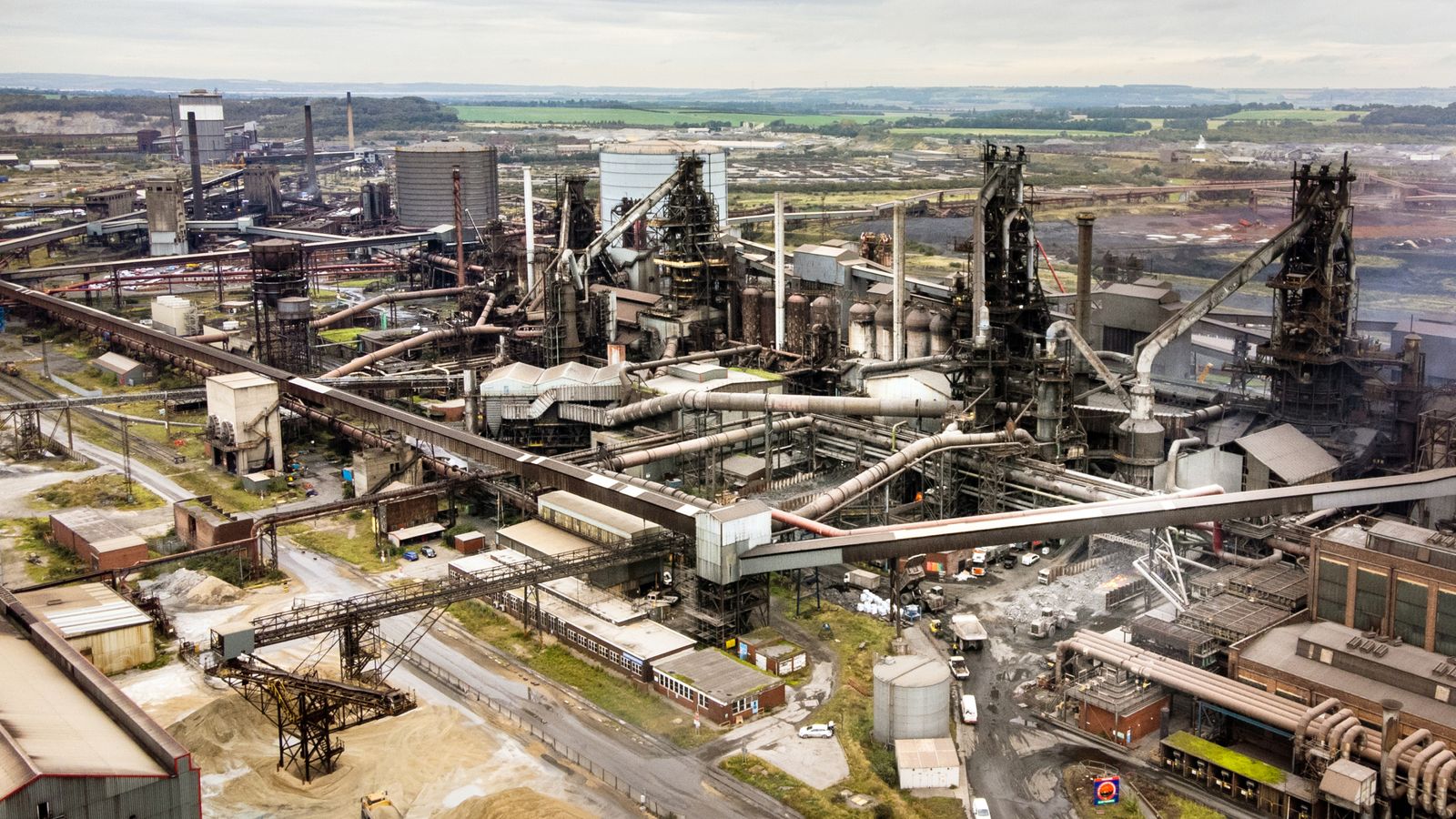Grant Shapps, the new business secretary, will hold crunch talks next week with the owners of Britain’s second-biggest steel producer, amid dwindling hopes that a government aid package will prevent thousands of job losses.
Sky News has learnt that Mr Shapps will speak to Jingye Group executives on Monday in an attempt to persuade the Chinese company not to close one of the two blast furnaces at British Steel’s Scunthorpe base.
Insiders said this weekend that Jingye, which took control of an insolvent British Steel in 2020, had become increasingly pessimistic since Rishi Sunak became prime minister that the government will agree to the provision of substantial taxpayer funding.
One source said that British Steel had begun placing orders for equipment that would be required in order to permanently close one of Scunthorpe’s blast furnaces.
Such a move would entail as many as 2,000 redundancies at the company, the source added, in what would be a further blow to Britain’s industrial manufacturing capability.
Mr Sunak is expected to strike a more bearish tone towards requests for government money to prop up struggling companies than his short-lived predecessor in Downing Street, Liz Truss.
Jacob Rees-Mogg, who lasted just weeks as business secretary under Ms Truss, opened formal talks with Jingye last month about the provision of hundreds of millions of pounds of funding to help British Steel decarbonise.
One of the pre-conditions set by Whitehall for the talks was that Jingye would not cut jobs at British Steel while the discussions were ongoing.
Tata Steel, which is the biggest player in the UK steel sector, has also requested financial help from the government.
Last month, a Whitehall insider told Sky News that talks were “underway with the steel sector, including British Steel and Tata, to secure the sector’s long-term future”.
British Steel employs about 4,000 people, with thousands more jobs in its supply chain dependent upon the company.
The Department for Business, Energy and Industrial Strategy (BEIS) declined to comment on Saturday, while a British Steel spokesman said: “We are continuing formal talks with the UK Government to help us overcome the global challenges we currently face.
“The government understands the significant impact the economic slowdown, rising inflation and exceptionally high energy and carbon prices are having on businesses like ours and we look forward to working together to build a sustainable future.”
Industrial consumers of energy have complained for months that soaring prices are imperilling their ability to continue operating.
The request for financial support from Jingye poses a political headache for ministers, given the scale of the potential job losses which might result from a refusal to provide taxpayer aid.
An agreement to provide substantial taxpayer funding to a Chinese-owned business, however, would inevitably provoke outrage among Tory critics of Beijing.
China’s role in global steel production, after years of international trade rows about dumping, would make any subsidies even more contentious.
In May 2019, the Official Receiver was appointed to take control of the company after negotiations over an emergency £30m government loan fell apart.
British Steel had been formed in 2016 when India’s Tata Steel sold the business for £1 to Greybull Capital, an investment firm.
As part of the deal that secured ownership of British Steel for Jingye, the Chinese group said it would invest £1.2bn in modernising the business during the following decade.
Jingye’s purchase of the company, which completed in the spring of 2020, was hailed by Boris Johnson, the then prime minister, as assuring the future of steel production in Britain’s industrial heartlands.
